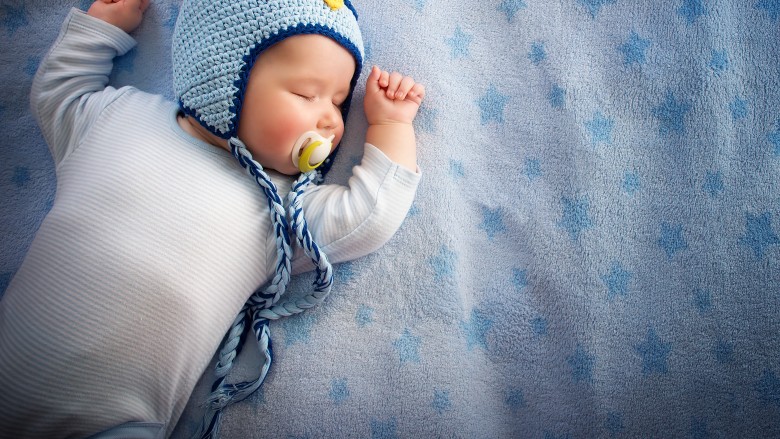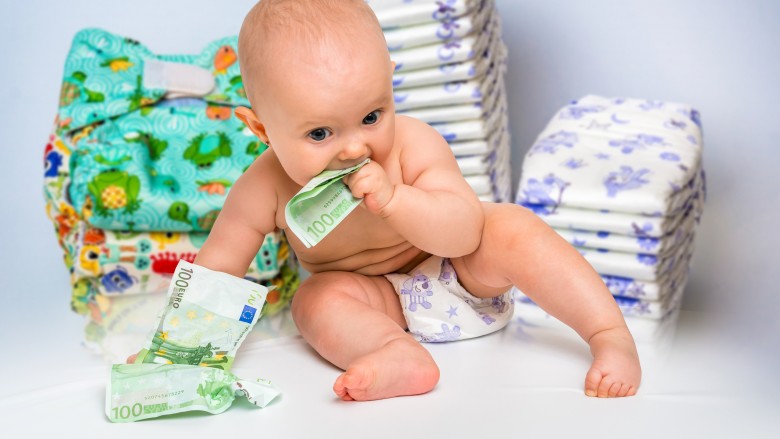How would you feel being told you had a “high-risk” pregnancy? What about “geriatric pregnancy,” or the tongue-twisting “elderly primagravida?” Sure, they all initially sound like they warrant a trip to an emergency specialist, when in reality, they are the terms used for any of the growing number of women 35 years and older who are choosing to delay pregnancy until their late 30s and beyond.
It does remain true that women entering motherhood at 35 years of age and older are at an increased chance of health risks for themselves, and their babies. Doctors will warn of the statistically heightened incidences of miscarriage, cesarean section, premature birth, and chromosomal irregularities that “advanced maternal age” can bring. But doctors will also note that an otherwise healthy mother should look forward to a healthy pregnancy. Mount Sinai’s Director of Fetal Medicine, Dr. Joanne Stone, told CBS New York, “A lot depends on the health of the woman. Healthy women without underlying problems will sail through pregnancy.”
And what else can these healthy, older moms sail right through? Quite a lot, it would seem.
1. Your finances are in order

News flash! Kids are expensive. Parenting reports that new moms and dads should expect to spend at least $50 per week on a baby’s needs — and that’s just for diapers, baby formula and baby food. Add to that the stroller, car seat, clothing, and crib, and both mommy and baby’s medical expenses, and you’ve got quite a lot more to handle in that first year than just late night feedings.
Older parents are more likely to have a cushion of savings set aside for such needs, as well as a better idea of how to budget month to month expenditures. Student loan payments are either gone or drawing to an end, and there is an increased chance of a good health insurance policy being in place. While your more secure financial status won’t guarantee stress-free parenthood, it will certainly make things easier when you are deciding on big budget items like child care or private schools.
2. You have more life experience to share

By the time you have reached your mid 30s, you have got a bit of livin’ under your belt. You have done some traveling, tasted some exotic foods, maybe you have burned through a few jobs, or a few boyfriends. You’ve read more books, learned more about the world, and are likely to have completed a higher level of education than some younger parents. It is probably no surprise that the level of education you achieve can have a direct affect on your children.
Studies find that children of educated parents not only have a higher chance of immediate academic success, but also other advantages well into adulthood. As discussed by The Institute for Family Studies, a paper from the Journal of Marriage and Family found that college-educated moms spend more time helping kids with homework, are better able to teach children to advocate for themselves, expose kids to enriching cultural activities, and surround children with a social network of educated friends and role models.
3. You might have happier kids
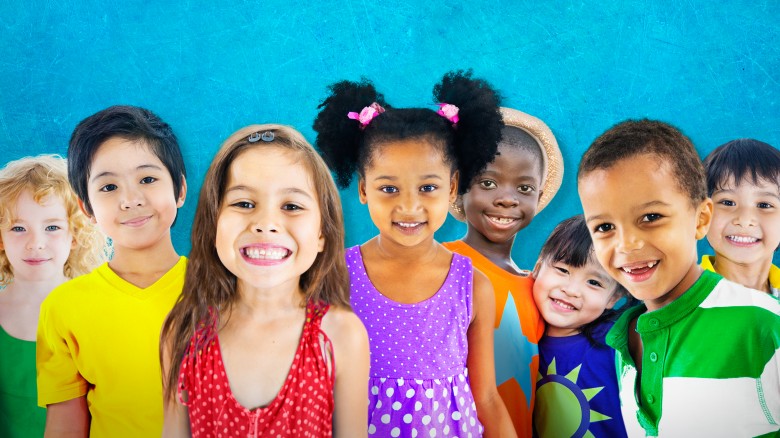
While it’s true that a woman giving birth after the age of 35 may have to face a few more physical risks than her younger counterparts, science says that her parenting skills may just surpass those of parents in their teens and 20s. In a study of 4,700 Danish mothers, the European Journal of Developmental Psychology found that older moms exhibited “more positive parenting behaviors” than younger parents, with less likelihood of “coercive power assertions” like yelling or severe physical discipline. The study’s authors report that this leads to children who grow up with a lower incidence of “behavioral, social, and emotional difficulties.”
And the benefits don’t stop there. According to a study of over 30,000 British children, the children of older mothers not only experience less social difficulties, but also exhibit stronger language development, as well as suffering fewer injuries and trips to the hospital.
Maybe they should start calling “high-risk” pregnancies, “high-risk, but totally worth it.”
4. Your partnership may be more stable
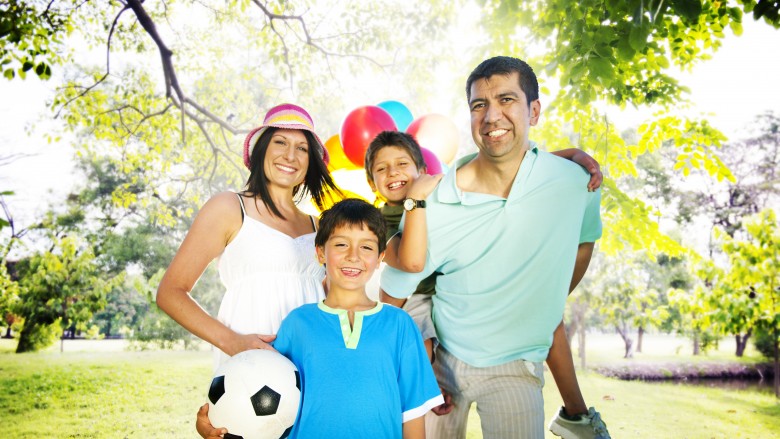
A woman in her 30s and beyond has had a little more time to shop around the mating pool. As we get older, and more in-tune with our preferences in a partner, there is a greater chance of finding a co-parent that we can enjoy a stable relationship with, which pays off not only for us, but also for our kids.
A study from Cornell University found that children of married, stable parents tend to fare best when it comes to facing teen challenges like binge drinking, drug use, poor grades, or early pregnancy. While it has long been the prevailing wisdom that children from secure marriages tend to thrive more than kids from single parent households, it is important to note that the Cornell study found that marriage itself was not the key factor in determining the benefits of a stable home, but the lack of high-conflict incidences in the home. Children from low-conflict, single-parent households did about the same, and in some cases better, than children from married, high-conflict households.
5. You may have a greater appreciation of becoming a parent

While younger moms may be surprised by their unexpected pregnancies, older moms are more likely to have planned for the blessed event. And all that planning means a new parent in their 30s or 40s has not only yearned for motherhood longer than a younger mom, but has probably also done a lot more sowing of their wild oats than mothers in their 20s.
Older parents may not experience the same kind of resentment at missing out on good times, and instead can focus their energies on enjoying their time with their children. Consider the parents who have suffered a miscarriage, or created their families through fertility treatments, surrogacy, or adoption — all options that can cost time, money, and anxiety, and it’s not difficult to imagine an older parent embracing the challenge of parenthood with a sunnier outlook.
6. You have already mastered “adulting”
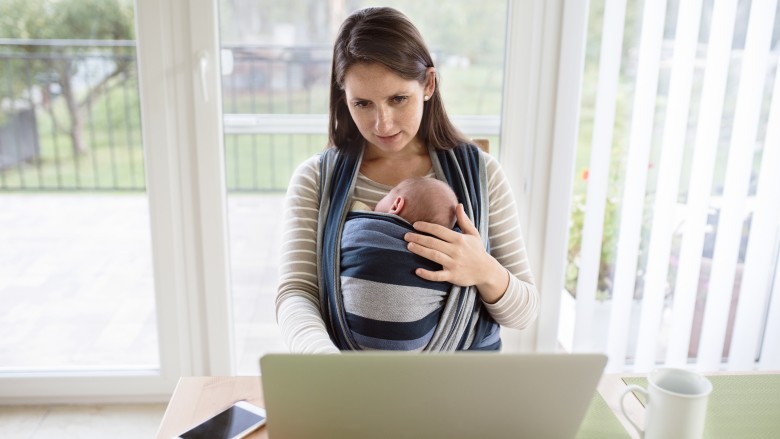
Sure, your 20s can be a total blast, but they also come with their fair share of major learning curves. Paying utility bills, negotiating with a landlord, buying a car, enduring grueling work schedules, and just navigating being an actual adult is something not all of us ease into so quickly. In fact, science says that our brains may not fully mature until we hit our 30s.
Now imagine adding a baby or two into the mix, and you will find yourself growing up on someone else’s timeline. Parents who have kids later in adulthood have had a longer chance to get the basics of being a grown up down. They have a higher chance of having an established career, and a stable home, all of which will ease the stress of 3 a.m. feedings or little Brady breaking the neighbor’s window with his soccer ball.
7. You can create more free time for your kids
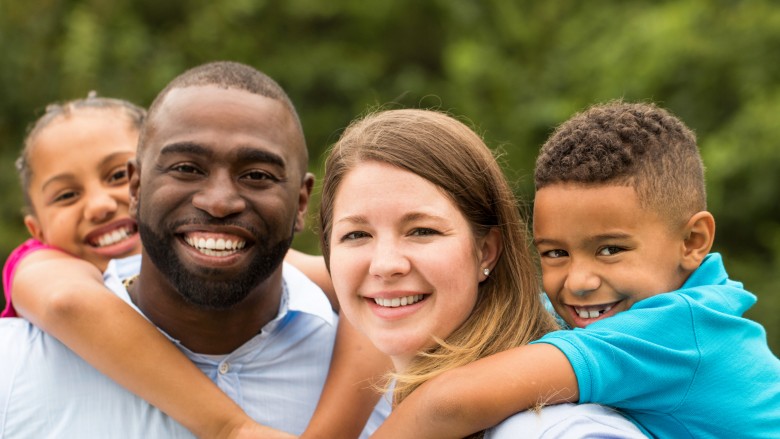
A stable career does a lot more for you and your family than just making sure the mortgage is paid every month. According to Business Insider, parents with established careers have an increased ability to negotiate time off for parental leave, and may have more vacation time accrued to take a day here and there for baseball games and school recitals.
If you have been at your job long enough, you may be able to adjust your schedule to odd hours, or even work remotely from home. Time home means more quality time with the kiddos, not to mention saving some big bucks on child care.
8. Your own parents are retired
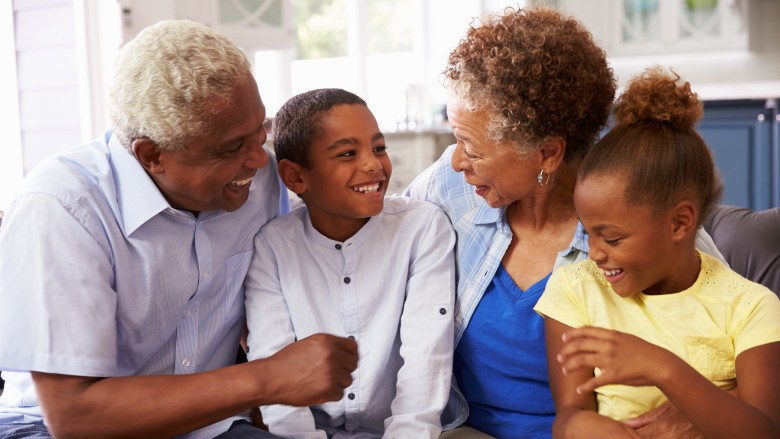
While we all may not have the luxury of living close enough to Grandma and Grandpa, or be fortunate enough to still have them in our lives, those of us that do know they can make pretty fantastic babysitters. If your folks are still in their 50s, they are probably still making the daily grind at work. But if they are retired? Babysitting nirvana!
Older parents have a greater chance of their own parents having free time to watch their little tyke. If your parents are particularly awesome, they may even save you some major child care bucks if they sub in for a nanny or daycare center a couple of days per week. If you want to make it official and pay your parent to watch your child, you may find it interesting to know that your parent would be exempt from social security and medicare withholding.
And don’t forget those harried first few weeks when you are home with a newborn. Whether you are recovering from a cesarean section, struggling with breastfeeding, or just acclimating to this exhausting life change you’ve been catapulted into, there is nothing quite like having a family member there to give you a loving hand.
9. It may keep you happy and healthy
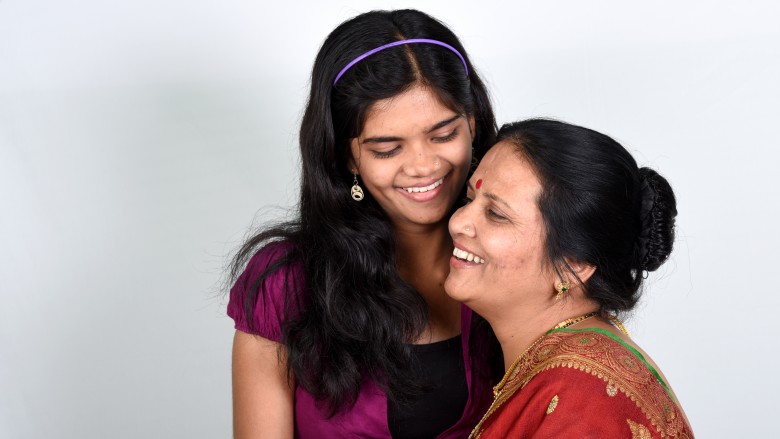
One of the most compelling reasons to not agonize over waiting to have kids until you are older? It turns out that giving birth when you are older than 25 might just make you live longer. That’s right. Despite the documented physical risks for mom and baby associated with “geriatric pregnancy,” Time reported on a University of California San Diego Medical School study of nearly 28,000 women, which found that women who were older at the time they gave birth enjoyed an increased chance of living to 90, with fewer incidences of chronic conditions related to aging like heart issues or diabetes. So don’t worry, the chances are pretty good that you will still be around to watch your little girl accept her Pulitzer Prize.
Longevity isn’t the only perk you may experience when choosing to delay parenthood. The scientific journal, Demography, discusses a study which sought to measure the happiness of parents at various ages. While parents of all ages saw an uptick in happiness in the year leading up to and after the birth of their first and second child, it was the parents between 35 and 49 that saw the greatest gains in happiness. That happy quotient even stuck around for the long run in older parents, while the happiness level of younger parents eventually returned to the baseline level, or even declined for particularly young moms and dads.
10. Taking it all in stride
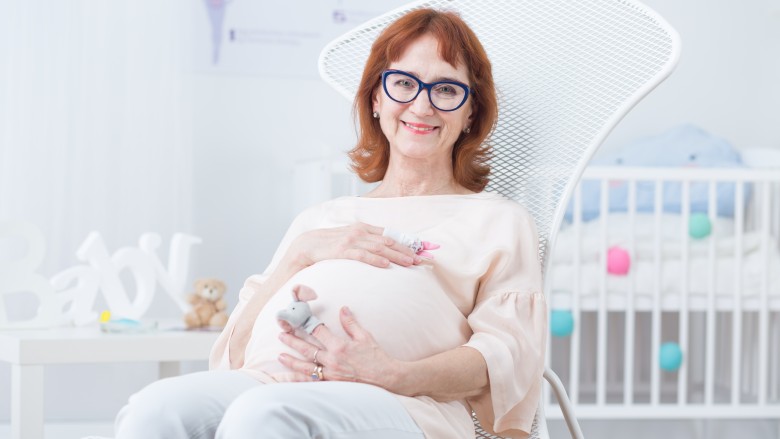
Self-confessed “oldest mom on the playground,” Jill Robbins, told the Washington Post, “As an older mother, I find humor in things that would have bugged me in my 20s: messy rooms, dirty faces, underpants on the floor, underpants on the door knob, leaving the house not dressed like an ad for Gap. I’m able to take time to appreciate just how rich my life really is.” It’s this attitude that possibly best sums up the advantages to embarking on parenthood at an older-but-wiser age. It’s when you’ve got a few more bucks in your pocket, an acknowledgment of the life lessons you’ve learned, strong relationships, and the ability to not sweat the small stuff (that might have sent you into a tizzy in your 20s) that you may be best equipped for the pitter patter of little feet.
And if you want to wait even longer? You can always score a job at Apple or Facebook — the companies both started offering egg freezing benefits to their female employees.

